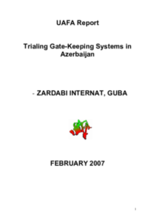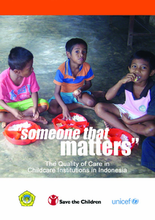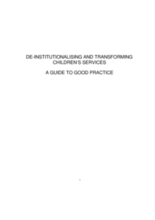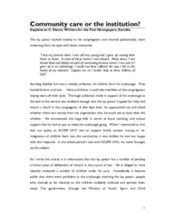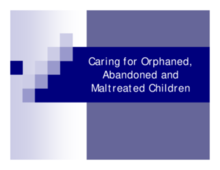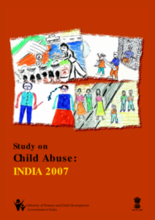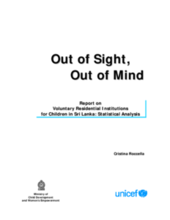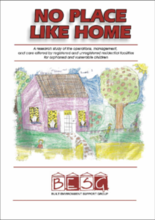Displaying 691 - 700 of 772
The aim of this report is to review international human rights norms as well as Liberian legislation, and to assess the compliance of orphanages with those standards.
Documents implementation of Azerbaijan's national de-institutionalisation and alternative care programming
Comprehensive evaluation of national responses and level of care standards for children without parental care in Indonesia.
This good practice guide provides a comprehensive description of the steps involved in the process of moving from institutional care to community-based services.
Brief article observing the proliferation of orphanages in Zambia. Points to several models of community-based care as alternatives better able to address the rights and needs of children.
A powerpoint presentation on the research findings of the Bucharest Early Intervention Project team. Includes comparisons of children raised in institutional care, vs. children placed in foster care, vs. children raised in the community.
Presents the findings of a nationwide study into the extent and characteristics of child abuse and girl neglect in India. Includes: children in a family environment but not attending school; children in schools; children in institutional care; working children; and street children.
This report provides a general overview of the situation of voluntary residential care institutions in Sri Lanka through the results of a national assessment campaign conducted in all districts by Probation Officers and Child Rights Promotion Officers.
This video by Save the Children highlights key research findings from an assessment on the quality of care in children's homes in Indonesia (2007), jointly published with the Indonesian Ministry of Social Affairs and UNICEF.
A study of the management, operations, and care offered by institutions for AIDS orphans in South Africa. It compares the findings of registered and unregistered institutions.

